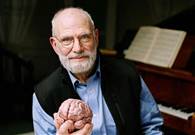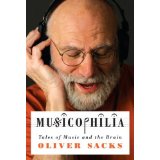Oliver Sacks (1933-2015) RIP
Posted



I was saddened yesterday to learn that Oliver Sacks had succumbed to the cancer that he announced last February. He was 82 years young.
Sacks researched and wrote about various brain anomalies, one of which was Tourette’s syndrome. It made me recall some experiences I’ve had.
I was an LA County Beach Lifeguard from 1965-2000 and had many great experiences during that long period. One of them had to do with a lifeguard colleague on Venice Beach who was looking for a place to rent. I suggested an upstairs apartment in Santa Monica, a four-plex on 3rd st. where I once lived. He moved in and the trouble started right away. A good friend of mine since high school, living in the unit below, was going to law school and needed to study all the time. My lifeguard friend would scream out expletives at 2, 3, or 4 in the morning. Finally my downstairs friend went up the stairs and confronted him with a baseball bat, thinking these outbursts were willful. The lifeguard had Tourette’s. This was in the early 1970s, when most people didn’t know about Oliver Sacks writings on the neurological syndrome.
Much later, teaching a music salon in my former home in Venice, there was a sweet guy named Christopher who’d always sit upstairs. Problem was that he would occasionally produce a loud salvo of profane words from his upstairs perch. This was in the early 1990’s. After a while, it just didn’t bother us. Later I realized he had Tourette’s too.
Thanks to Oliver Sacks I and others know much more about Tourette’s than I used to. I also appreciate his love of music, which he expresses so movingly in his book Musicophilia. I, like him, am a musicophile, a mélomane, as it’s called in French. He loved the music of Mozart and was a superb pianist who could do justice to it. He wrote about musicophiles like himself and the opposite extreme, people with amusia for whom Mozart sounded like pots and pans falling on the floor. He also wrote in Musicophilia about people who understood music very well, using classical musicians as an example, but who found no beauty or anything emotional in music.
His studies on alzheimer’s patients also showed us the power of music on older people frozen in time. In this video (Oliver Sacks is commenting on it) we see Henry, catatonic, come to life with his rediscovery of music He is so far gone he doesn’t recognize his own daughter, yet music brings him back to life.
http://blogs.kcrw.com/rhythmplanet/alive-inside-more-proof-of-the-power-of-music/
I loved Michiko Kakutani’s eloquent piece on him in today’s New York Times.
